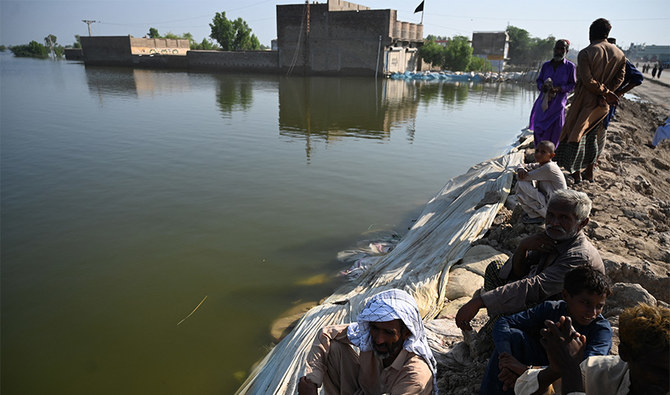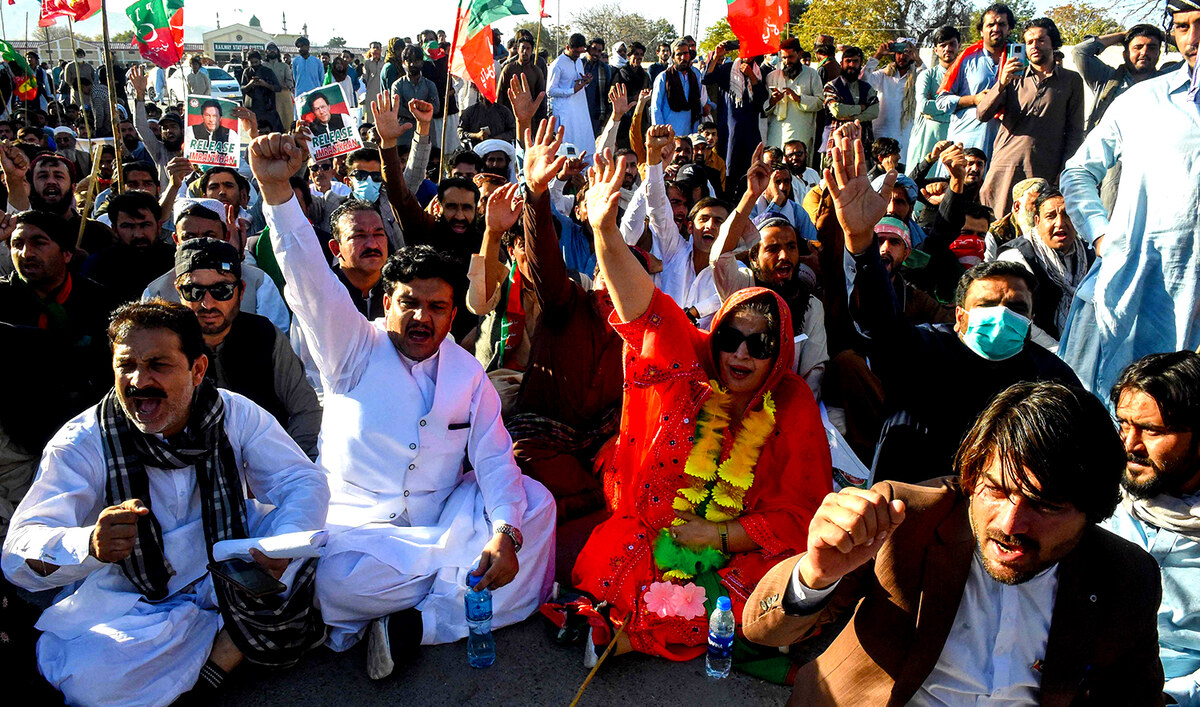ISLAMABAD: The chief executive of Pakistan’s southern Sindh province said on Sunday it would take three to six months to drain flood water from areas that fall under the control of his administration while pointing out that several places were still submerged by eight to 10 feet of water.
Pakistan’s southern regions of Sindh and Balochistan have experienced massive devastation since the beginning of monsoon rains in June which led to flash floods and destroyed houses, farmlands and public infrastructure.
United Nations Secretary General António Guterres, who arrived in Pakistan on a two-day visit on Friday, went to flood-affected areas while saying he had never witnessed such “climate carnage” before.
Speaking to journalists in Karachi, Chief Minister Murad Ali Shah attributed the situation to climate change, saying the scale of monsoon rains was unprecedented this year.
“It can take about three to six months to drain monsoon water,” he said. “We cannot end such rains until we agree to do something about climate change. And that is not our responsibility alone.”
Much like the UN chief, Shah blamed the developed world for creating a disastrous situation which had led to the suffering of ordinary Pakistanis.
Guterres said during his visit that G20 nations were causing 80 percent of global emissions, adding that they were “morally responsible” for helping countries like Pakistan.
“The people of Pakistan, and even among them the poor segments, are paying the price of what the world, especially the developed nations, have done,” said the Sindh chief minister. “You are already aware that nearly 33 million people do not have a roof over their head. They have lost their homes.”
He said the Pakistani leadership would forcefully present its case to the international community during the upcoming session of the United Nations General Assembly.
Shah also informed the farming community in his province had suffered the losses of at least Rs350 billion. He added it was not possible for people uprooted by the recent floods to return to their hometowns under the current circumstances where a lot of effort had to be made to carry out rehabilitation activities.
He informed that his administration wanted to clear at least 75 percent of agricultural land in the province of flood water to plant “late varieties of wheat crop” in the months of November and December.
Other than that, it also hoped to strengthen its broken irrigation and drainage system.
“We will have to come up with a package for farmers,” he said, adding it was important for the country to help them at this stage.

















